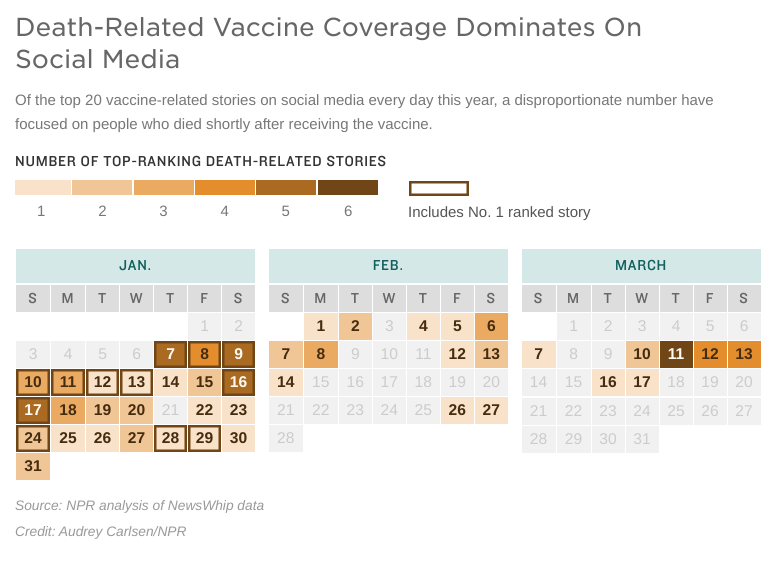According to recent data from the Centers For Disease Control and Prevention, you’re three times more likely to get struck by lightning.
But you might not know that from looking at your social media feed.
A new NPR analysis finds that articles connecting vaccines and death have been among the most highly engaged with content online this year, going viral in a way that could hinder people’s ability to judge the true risk in getting a shot.
The findings also illustrate a broader trend in online misinformation: With social media platforms making more of an effort to take down patently false health claims, bad actors are turning to cherry-picked truths to drive misleading narratives.
“It’s a really insidious problem,” said Deen Freelon, a communications professor at the University of North Carolina at Chapel Hill. “The social media companies have taken a hard line against disinformation; they have not taken a similarly hard line against fallacies.”
































